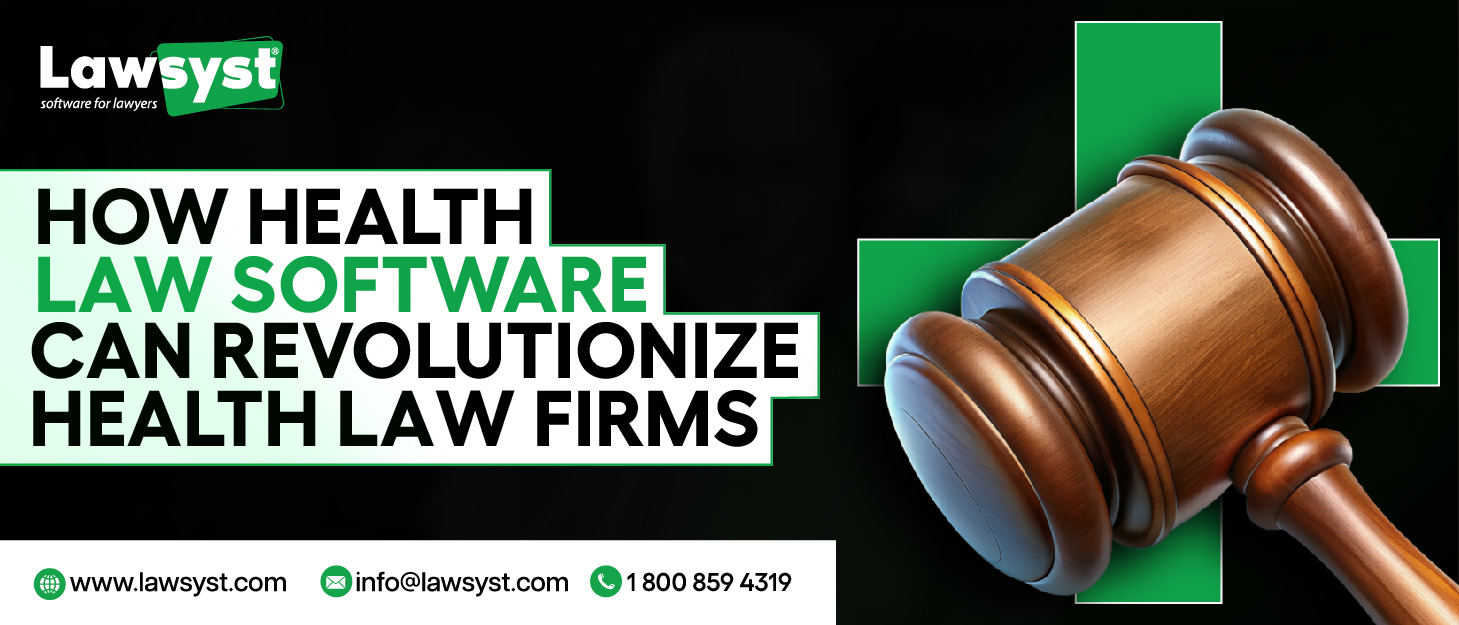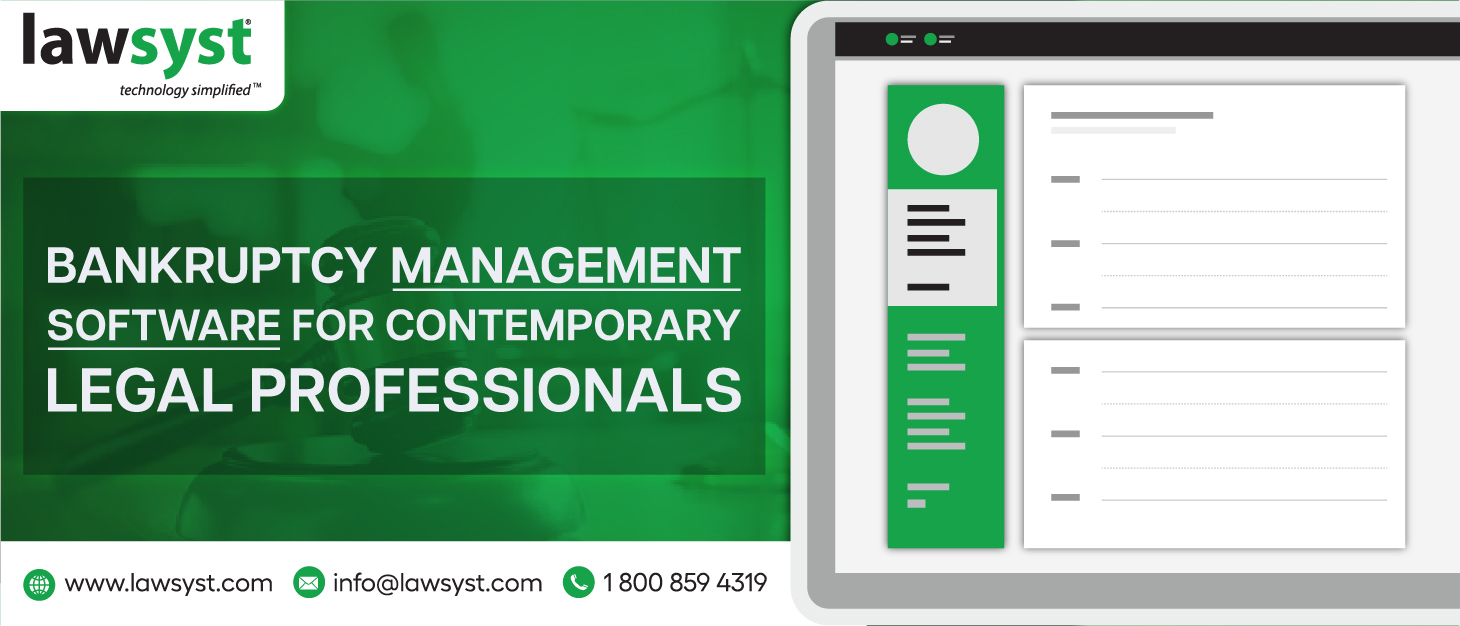Health law firms in the USA face unique challenges that can affect
their efficiency and effectiveness in the ever-evolving landscape of legal
practice. Navigating complex regulations, managing sensitive patient data, and
ensuring compliance with ever-changing laws require robust solutions. This is
where a legal case management system tailored for health law firms can make a
significant difference. In this article, we will explore the specific
challenges faced by health law firms and discuss how implementing a case
management system for health lawyers can address these issues and transform
their operations.
Challenges Faced by Health Law Firms
Complex Regulatory Environment
Health law firms in the USA navigate a complex regulatory
landscape that includes stringent federal and state laws. These regulations
encompass a broad spectrum of issues, including:
Patient Privacy:
Adherence to HIPAA for protecting patient information.
Medical Malpractice:
Compliance with state-specific laws on filing claims, damages, and proving
negligence.
Insurance Claims:
Proper handling under the ACA and state insurance laws.
Fraud and Abuse Laws:
Following the False Claims Act and Anti-Kickback Statute for billing and
financial practices.
Keeping up with frequent regulatory changes demands ongoing
research and vigilance to ensure compliance and minimize legal risks.
Sensitive Patient Data Management
Handling sensitive patient data is a critical aspect of
health law practice. This data must be protected to comply with privacy laws
such as the Health Insurance Portability and Accountability Act (HIPAA).
Managing this data securely while ensuring that it is easily accessible to
authorized personnel poses a significant challenge. The risk of data breaches
and unauthorized access can have severe legal and financial consequences.
Coordination among Multiple Stakeholders
Health law cases in the USA frequently involve multiple
stakeholders such as healthcare providers, insurance companies, and patients,
making coordination a critical challenge. Health law firms must manage complex
interactions among these parties, ensuring timely and accurate communication.
This involves tracking and consolidating diverse types of documentation—from
medical records to insurance claims—across various platforms. The complexity of
coordinating these elements can lead to inefficiencies and errors if not
handled properly.
Effective case management requires robust systems to ensure
that all pertinent information is recorded meticulously, easily accessible, and
shared efficiently among stakeholders to support successful case outcomes.
Volume of Documentation and Case Files
Health law firms manage an extensive volume of
documentation, including medical records, legal briefs, and case notes.
Efficiently organizing and managing these documents is crucial yet challenging.
Traditional paper-based systems or basic digital tools often result in
disorganization and slow retrieval of information. The sheer volume and
complexity of these files require advanced document management solutions to
ensure quick and accurate access, which is essential for maintaining effective
case management and supporting timely legal actions.
Time Management and Billing
Efficient time management and precise billing are crucial
for the financial stability of health law firms. These firms need to
meticulously track billable hours, manage various expenses, and generate
accurate invoices, all while adhering to stringent billing regulations. Manual
tracking and billing processes can be error-prone and inefficient, leading to
discrepancies and potential revenue loss. Implementing automated systems for
timekeeping and billing can streamline these tasks, reduce errors, and ensure
compliance with regulations, ultimately enhancing the firm’s financial health
and operational efficiency.
Legal Research and Case Preparation
Effective legal research and case preparation are crucial
for building strong cases in health law. Firms require access to extensive
legal resources and case precedents to create well-founded arguments and
strategies. This process can be time-consuming, involving the review of
numerous legal documents, statutes, and past case outcomes. To streamline this,
a structured approach is essential to ensure all relevant information is
efficiently gathered, analyzed, and integrated, ultimately supporting thorough
case preparation and enhancing the likelihood of favorable outcomes.
How a Health Law Software Can Address These Challenges
Enhanced Compliance and Regulation Management
For health law firms in the USA, maintaining compliance with
a myriad of federal and state regulations is crucial. A case management system
tailored for these firms can significantly enhance compliance and regulation
management. Such systems typically feature built-in tools that track and update
changes in relevant regulations, including HIPAA, the Affordable Care Act
(ACA), and state-specific laws. Automated alerts and updates within these
systems help ensure that the firm remains current with evolving legal
requirements. This proactive approach reduces the risk of non-compliance,
mitigates potential penalties, and helps avoid legal issues by keeping all
compliance documentation organized and readily accessible.
Secure and Organized Data Management
Case management systems for lawyers provide secure data
storage solutions such as encryption, access controls, and audit trails to
protect sensitive patient information. These systems centralize data storage,
ensuring that all case-related documents and patient records are securely
stored and easily accessible only to authorized personnel. By implementing
robust security measures, health law firms can significantly reduce the risk of
data breaches, comply with legal requirements, and maintain the confidentiality
of sensitive information, thereby safeguarding both their clients and their
practice.
Improved Coordination and Communication
Modern health law software like Lawsyst enhances
coordination among stakeholders by offering a centralized platform for
communication and document sharing. These systems provide real-time updates and
notifications, ensuring that healthcare providers, insurance companies, and
patients are consistently informed. This centralized approach reduces the risk
of important information being overlooked and facilitates smoother
collaboration. As a result, case management becomes more efficient, with
streamlined workflows leading to quicker resolution times and improved client
satisfaction.
Efficient Document Management
A legal practice management system provides advanced
document management features, such as digital storage, indexing, and retrieval,
which are essential for health law firms. By organizing case files and
documentation electronically, firms can streamline their workflow, allowing for
swift searching and access to specific documents. This digital approach reduces
dependence on physical paperwork, thereby minimizing the risk of document loss
or misplacement. It enhances efficiency and ensures that important information
is readily available when needed, supporting better case management and
organization.
Streamlined Time Tracking and Billing
Modern case management platforms come equipped with
integrated time tracking and billing tools, offering significant advantages for
law firms. These features enable precise recording of billable hours, efficient
management of expenses, and streamlined invoice generation. By automating
billing processes, health lawyers can minimize errors, ensure timely invoicing,
and enhance overall financial management. This automation not only simplifies
administrative tasks but also helps maintain accurate financial records,
thereby improving cash flow and reducing administrative burdens on legal staff.
Efficient Legal Research and Case Preparation
Law case management systems often include integrated legal
research tools and access to case precedents, which can significantly
streamline the research process. These built-in resources facilitate efficient
access to critical legal information and case law, offering valuable insights
for case preparation. Moreover, these legal technologies can organize research
materials and case notes systematically, ensuring that all relevant information
is readily accessible. This organization helps health law practitioners quickly
retrieve and utilize essential data when preparing for trials or legal
proceedings, ultimately improving case management and effectiveness.
Key Features of Health Law Software
Customizable Dashboards and Reporting
Health law firms require customized reporting and analytics
to track case progress, manage workloads, and assess performance. A case
management system with customizable dashboards allows firms to generate reports
tailored to their specific needs, providing valuable insights into case
management and firm operations.
Integration with Other Systems
Integration with other systems, such as electronic health
records (EHR) and accounting software can enhance the functionality of a case
management system. This integration ensures that all relevant information is
accessible from a single platform, reducing the need for manual data entry and
improving overall efficiency.
User-Friendly Interface
A user-friendly interface is essential for ensuring that all
team members can effectively utilize the practice management suite. Intuitive
navigation and easy-to-use features can reduce the learning curve and improve
adoption rates within the firm.
Mobile Accessibility
Mobile accessibility allows attorneys and staff to access
case information and manage tasks while on the go. This feature is particularly
useful for health law firms with attorneys who need to access case details or
communicate with clients outside of the office.
Adaptability
Modern case management system for lawyers such as Lawsyst offers
the flexibility to adapt to various legal practices, including real estate law.
Its powerful customization options allow firms to tailor features and workflows
and use it as real estate law software when needed. This adaptability ensures
efficient management across different practice areas while maintaining
consistent functionality and performance.
Conclusion
A case management system can be a game-changer in the
challenging environment of health law practice. By addressing key challenges
such as regulatory compliance, data management, stakeholder coordination, and
document organization, this technology can significantly improve the efficiency
and effectiveness of health law firms. With features designed to streamline
time tracking, billing, and legal research, practice management software can
revolutionize the way health law firms operate, ultimately leading to better
outcomes for clients and enhanced firm performance. Embracing a case management
system tailored for health law can position firms to navigate the complexities
of their practice with greater ease and success.






